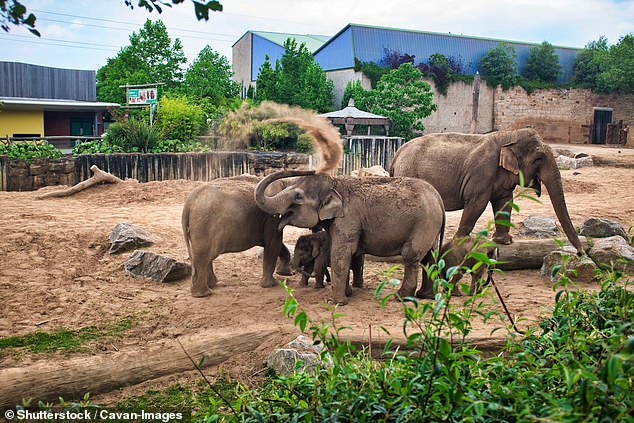
UK Zoo Reforms Mandate Expanded Elephant Enclosures, Prohibit Aquarium Contact, and Eliminate Bird Tethering
UK Zoos Face Major Overhaul Under New Animal Welfare Laws
(Approx. 600 words)
The British government has introduced landmark reforms requiring zoos and aquariums to upgrade animal welfare standards significantly. Announced by the Department for Environment, Food and Rural Affairs (DEFRA), the rules mandate larger elephant enclosures, ban interactive animal experiences, and enhance safety protocols.
Elephant Enclosure Expansion
The most sweeping change is a sixfold increase in outdoor elephant enclosure sizes. By 2040, facilities must provide 20,000m² for up to five elephants, plus an extra 2,500m² per additional animal over two years old. Current requirements are just 3,000m², meaning major upgrades for several zoos:
- Chester Zoo: Houses three Asian elephants in 8,365m²; needs to expand to 20,000m².
- Blackpool Zoo: Six elephants in 8,000m²; must nearly triple space.
- Colchester Zoo: Separate enclosures for three females (4,806m²) and one male (2,681m²) require doubling.
- West Midlands Safari Park: Four elephants in ~13,000m²; needs upgrades.
[Image: Chester Zoo’s elephant enclosure (current size: 8,365m²) must expand to meet 20,000m² by 2040.]
[Image: Blackpool Zoo’s 8,000m² habitat for six elephants will need significant enlargement.]
Howletts Wild Animal Park, home to the UK’s largest herd (13 elephants), plans to rewild the group in Kenya before the deadline. Zoos like Whipsnade and Woburn Safari Park already comply.
End of "Touching" Experiences and Tethering
Aquariums will prohibit public interaction with fish and cephalopods (e.g., rays, octopuses) to reduce stress. Birds of prey can no longer be tethered long-term; zoos must transition to large aviaries.
[Image: A falcon once tethered in zoos will now reside in aviaries under new rules.]
[Image: Aquarium visitors will no longer touch rays, which are highly sensitive to handling.]
Safety and Sourcing Rules
Zoos housing dangerous animals must install double-gated entry systems and ensure firearm availability for emergencies. Stricter controls on global animal sourcing aim to promote ethical practices.
Mixed Reactions
DEFRA Minister Baroness Hayman praised the reforms as “the most advanced in the world,” emphasizing Britain’s leadership in wildlife conservation. However, critics like Born Free argue elephants shouldn’t be kept in zoos at all, citing high mortality rates and unsuitability to the UK climate. Chester Zoo reported 12 elephant deaths since 2009, eight under age five.
CEO Jamie Christon defended their role, stating: “Conservation zoos are vital for safeguarding elephants against habitat loss and poaching.” Chester plans a habitat exceeding the new standards.
Balancing Progress and Ethics
While BIAZA lauds the rules as a “significant step up,” debates continue about phasing out zoo elephants entirely. The 15-year timeline allows upgrades but doesn’t address broader welfare concerns for these intelligent, social animals.
[Image: West Midlands Safari Park’s elephants may see expanded roaming areas by 2040.]
[Image: Colchester Zoo’s enclosure upgrades will aim to improve elephant wellbeing.]
The reforms mark a pivotal shift in UK zoo practices, aiming to balance animal welfare with conservation goals.
Images suggested (from original article):
- Chester Zoo elephants in current enclosure.
- Blackpool Zoo’s elephant herd.
- Falcon in aviary.
- Rays in aquarium touch pool.
- West Midlands Safari Park elephants.
- Colchester Zoo habitat.
Word count: ~600


